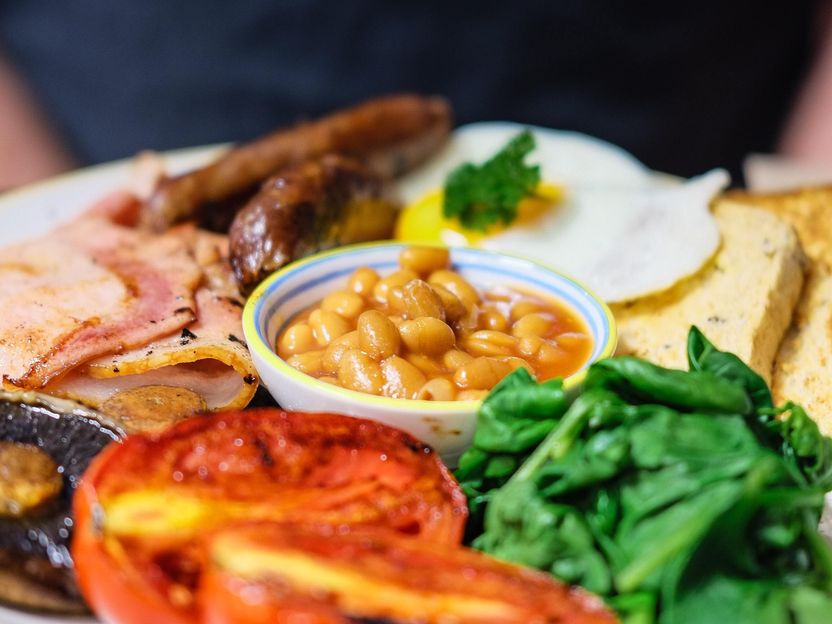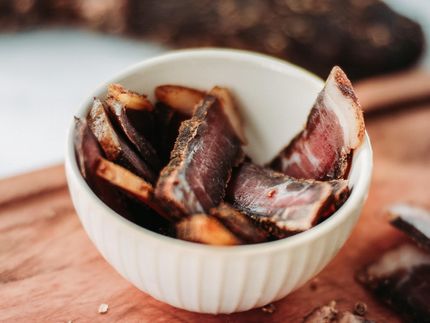Half of Brits limit their meat intake or don’t eat meat - as processed meat sales shrink back
Number of Brits who believe eating less meat is better for the environment doubles between 2018-21
While locked down Brits sought comfort in breakfast and barbecue favourites such as sausages and burgers, according to new research from Mintel, meat reduction has returned to around the level seen in 2019, following a dip in 2020.

Photo by Melissa Walker Horn on Unsplash
Just under half (49%) of Brits are now limiting their meat intake or not eating it at all, up from four in ten (41%) in 2020 - and almost back in line with 2019 levels where the figure stood at 51%. While the number of Brits not eating red meat or poultry has remained largely unchanged (10% in 2020 versus 11% in 2021), there has been a significant increase in the number of Brits limiting/reducing their meat eating (31% in 2020 versus 38% in 2021). The trend towards meat reduction comes as sales of sausages, bacon and burgers dropped an estimated - 4.3% in 2021 falling to £2,628 million, following the 2020 high when sales increased 22% to reach £2,755 million. While sales remain 16% above 2019, they are predicted to fall further in 2022.
Meanwhile, sales of meat substitutes* are estimated to have increased by 9% in 2021, reaching £598 million, albeit at a slower rate of growth than 2020 when sales increased an impressive 34% to reach £551 million. Strong consumer interest in limiting/reducing the eating of meat, combined with the market retaining its momentum in terms of new launch activity and more retail space will drive further growth in sales. Overall, more than half (53%**) of Brits enjoy meat substitutes, signalling their widespread appeal beyond non-meat eaters.
Despite the buzz around the vegan trend, only 2% of Brits follow a purely vegan/plant-based diet.
Richard Caines, Mintel Senior Food & Drink Analyst said:
“While sales of processed meat still benefited in 2021 from more meals being eaten at home, they slipped back from their 2020 high. Meat reduction has returned to around the level seen in 2019, following a dip in 2020 when other priorities likely became more pressing in food and drink choices. This includes people seeking comfort and familiarity during the first COVID-19 lockdown.
“The fact that nearly half of adults now either don’t eat meat/poultry or are limiting intake poses a challenge for the meat industry and points to vast further potential for meat substitutes’ growth, if they can win favour as the alternative. It also offers compelling evidence of how media coverage around meat has reached consumers, with eating less meat widely associated with various benefits.
“However, meat brands can fight back by drawing attention to the essential nutrients these foods can provide, in order to help to highlight and bolster their health credentials, whilst providing more details on the ‘how’ and ‘who’ of the farm to fork journey - which can also boost consumer trust.”
Half of Brits believe that eating less meat is better for the environment
Eco-conscious Brits are increasingly seeing a positive link between eating less meat and environmental benefits, a view that has nearly doubled from a quarter (25%) of consumers in 2018 to almost half (47%) in 2021. And it’s older generations who are most likely to see the link: 51% of those aged 65+, compared to 45% of 16-34-year-olds.
Helping the environment is seen as the number one benefit from meat reduction, greater than helping consumers manage their weight (28%) or saving money (27%). Other benefits include reducing the risk of disease (25%) and feeling good (23%).
Richard Caines, Mintel Senior Food & Drink Analyst said:
“Reducing meat consumption has been identified as one of the key components of reducing greenhouse gas emissions and tackling climate change by governmental organisations, and more and more people are making a positive link between eating less meat and benefiting the environment. Public awareness is likely to have been further increased by the COP26 conference.
“Mintel predicts a longer-term increase in interest in sustainability. People are becoming more conscious of their purchase choices and the wider consequences that these have.
Almost three in ten (28%) Brits believe that the environment is a higher priority for them since the COVID-19 outbreak. This will lend ongoing momentum to both the meat reduction trend and the scrutiny of the sustainability of meat substitute products.”






























































